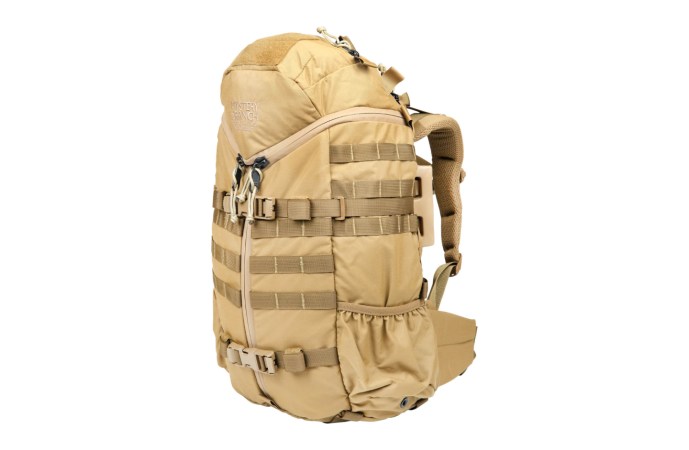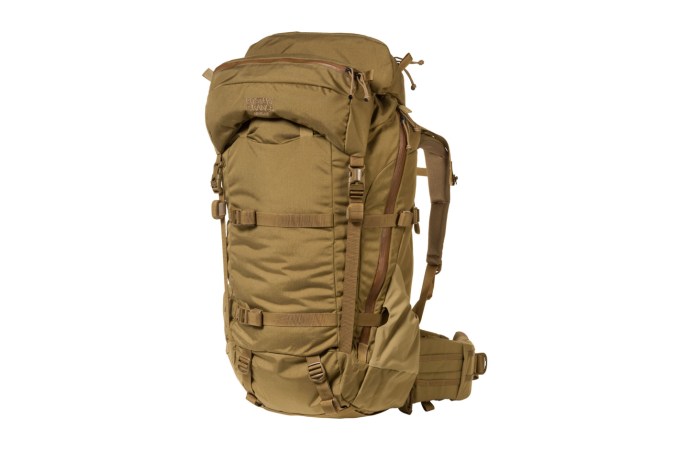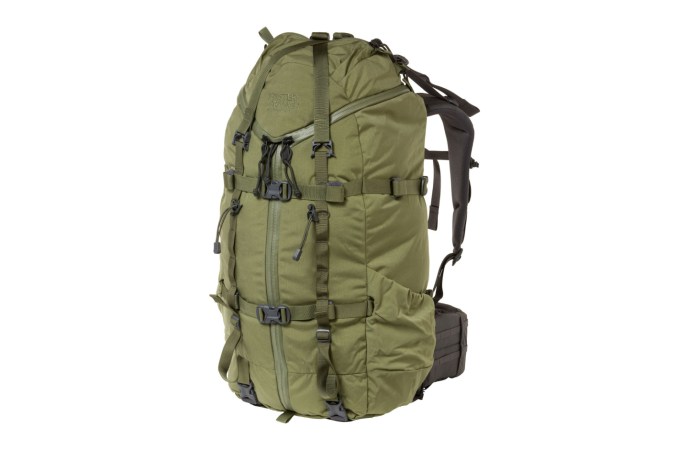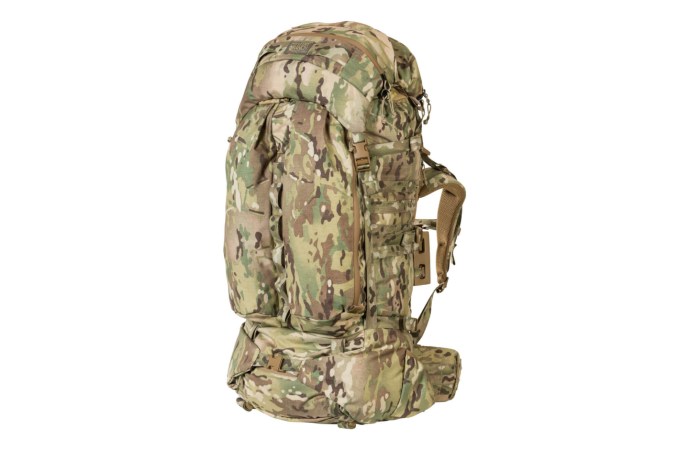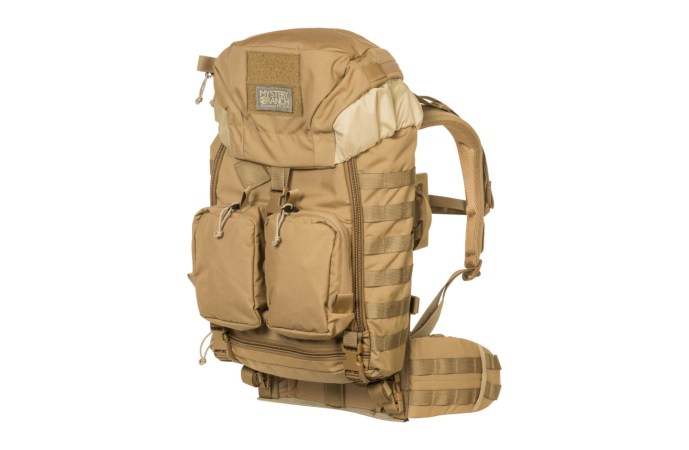We may earn revenue from the products available on this page and participate in affiliate programs.
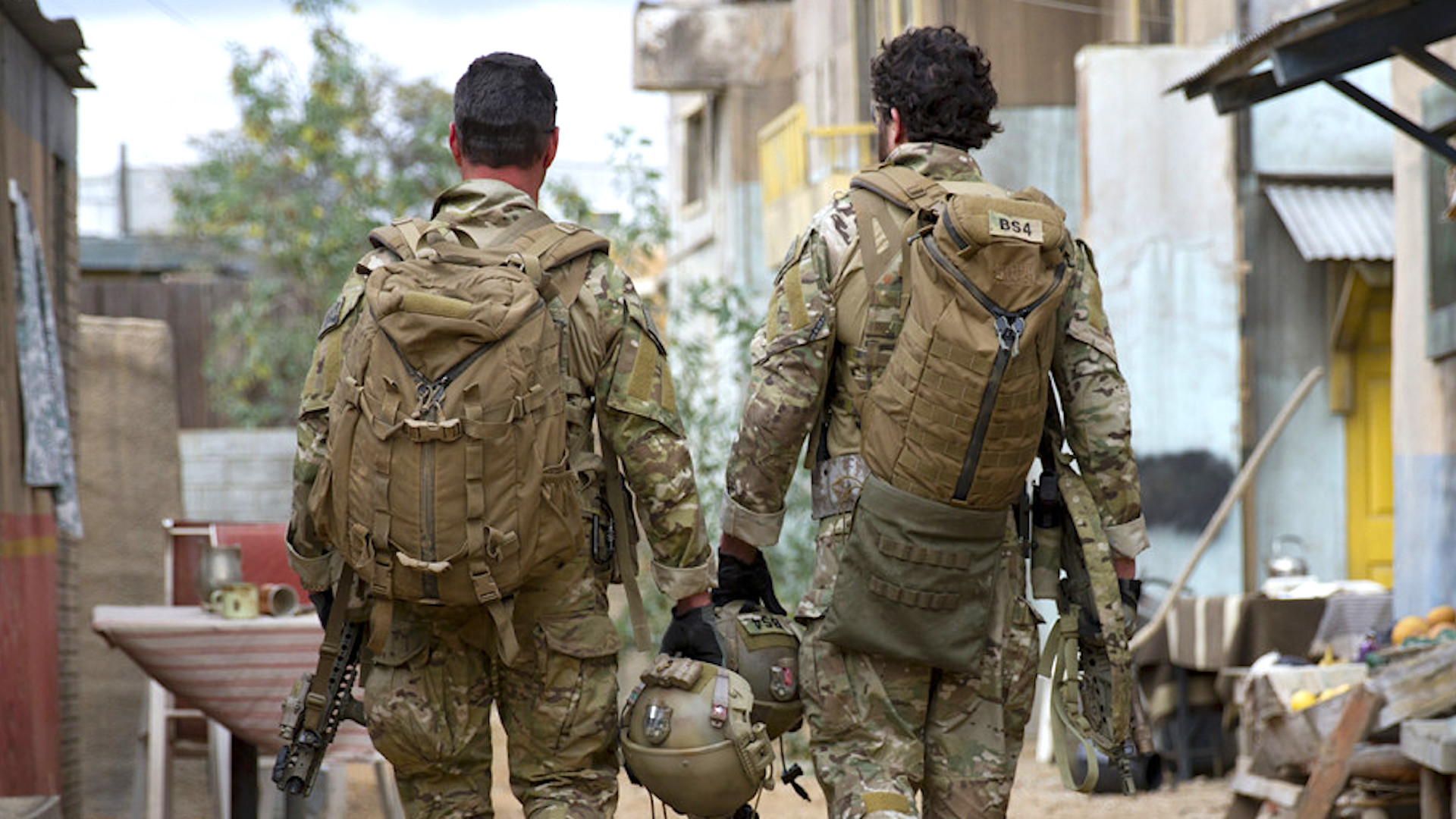
If you ask an average person to describe a backpack, they’ll probably say it’s a bag with two straps and maybe some zippers. But if you ask Dana Gleason, you’ll get a very different answer. Instead, he’ll talk about pack size, body type, environment, and body armor.
That’s because Gleason is the mastermind behind Mystery Ranch, a company known for producing some of the best tactical backpacks available on the market. We sat down with Gleason to learn more about his brand and just how much thought goes into making a military pack.
While Gleason has no military background, he’s spent decades working in textiles and designing outdoor gear. He cut his teeth in the 1970s working on backpacking gear with his first company, Dana Design.
“We started by repairing other people’s packs and improving them, and by looking at what broke or went wrong on those packs, we learned what not to do,” he told Task & Purpose.
Subscribe to The Gear Locker newsletter. Get reviews, guides, and discounts on purpose-driven gear in your inbox weekly.
Today, Mystery Ranch makes more than 80 percent of its revenue from tactical backpack sales. The bags are also trusted by the highest echelons of the U.S. military special operations. Yet, Mystery Ranch’s success goes beyond financial. The company’s backpacks have forced operators and military branches to consider premium features standard. According to Gleason, Japanese zipper maker YKK agreed on the Mystery Ranch name alone to produce zippers in the U.S. specifically for military packs, which makes them Berry compliant.
The point is, you have probably interacted with a Mystery Ranch concept, even if you don’t know the name, thanks to the proliferation of its design concepts across the ranks of the U.S. military. And Gleason summed the Mystery Ranch ethos up succinctly: “If you’re not the very best, quit wasting your time.”
“‘Lowest price, technically acceptable’ is an insult,” he said. “With us, you’ll get your problem solved, no matter what it is, but we’re not trying to sell you the cheapest bag on the market.”
How to pick a tactical backpack
According to Gleason, there is no such thing as “the best tactical backpack” — at least, not one that will suit everyone.
“Most people don’t even know that you need to size your backpack to your body,” Gleason said. “People will put on a pack that’s too large and complain that it’s painful when they hike long distances with it.”
The original Dana Design packs “were fully adjustable, but that’s not practical for military applications,” Gleason said, so the company “simplified the process and made it as easy as possible to get the right size and fit.”
To that end, finding the best tactical backpack for you requires answering some questions about what you plan on carrying inside the backpack, how long you’ll be wearing it, and where you’ll be wearing it. You’ll also want to know if you’re going to wear body armor or not. Once you answer those questions, you can then start looking for features to accommodate your needs.
Buying and wearing tips
- Get a backpack that fits. The straps and frame (if applicable) should fit your height and build. With Mystery Ranch, that means getting the right size harness.
- Packs with a carrying capacity of 20 liters or more should feature load lifters.
- If you plan to carry more than 30 pounds, get a pack with a frame (internal or external).
- Plastic frames aren’t necessarily bad and metal frames aren’t necessarily superior. It comes down to design.
- If you wear a pack over body armor, use a chest cinch. Mount it to the straps or your plate carrier so they don’t cut off circulation to your arms and you have a range of motion.
- Mystery Ranch packs featuring the Bolstered Vest Stabilization (BVS) are good for wearing a plate carrier and carrying gear over top.
- Kidney straps will keep your pack from swaying, especially with heavy loads.
- Many specialized packs are designed for extremely niche uses, so it won’t make sense to use it for anything other than the intended purpose.
- Tactical backpacks MUST be NIR-compliant, and if you’re not sure, ask the company.
- When you pack, store heavier items high inside the pack and close to your body.
The Mystery Ranch solution
What makes Mystery Ranch backpacks stand out against the competition is their ability to withstand wear.
“We prioritized durability over almost anything else, meaning that while other packs on the market might be lighter for the same size, ours will hold up more,” Gleason told Task & Purpose.
And that durability guarantee extends to repairs as well. “We have a dedicated team for warranty repairs, meaning that if you buy a Mystery Ranch pack, you’re a Mystery Ranch customer for life,” Gleason said. “Just send it back to us, and we’ll make it right.”
With so much thought going into not how you interface with the pack but the intended purpose, we thought we’d dive in and highlight some of our picks for the best Mystery Ranch backpacks.
